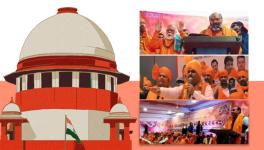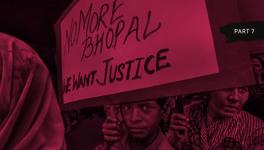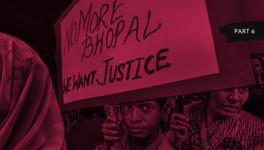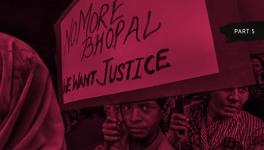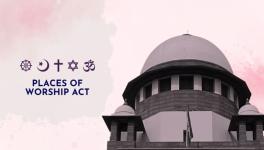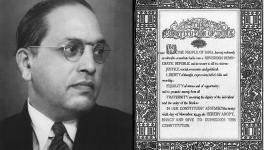The NRC is a Mess
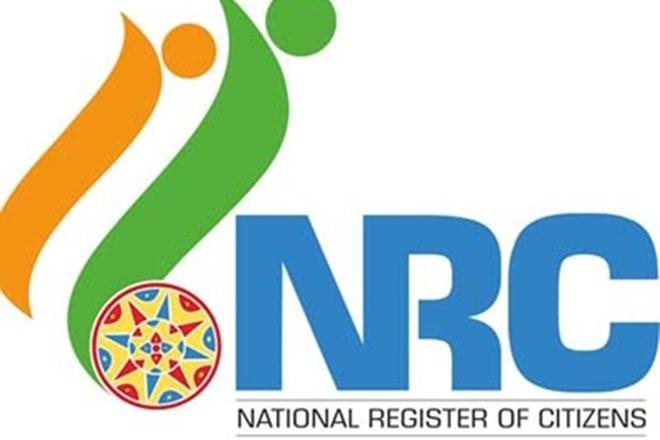
Image Courtesy: The Financial Express
On March 27 the Hindustan Times carried an article titled “In Assam, rape and murder of minor takes a ‘Bangladeshi’ turn”. The article pertained to the brutal rape of a minor, the accused had allegedly tried to burn the victim to death. The child died due to the burns. What became an issue was not just the brutality of the act, but also the fact that all the three accused were Muslims. This then has coloured the discourse on the crime. The general public appears to have already decided the citizenship of the three accused. Though the issue of illegal immigration from Bangladesh has been a long-standing issue in Assam, the general view tends to be that all those who speak ‘Bengali’ fall within this category. If the person is a Muslim, the suspicion is only greater.
The Anup Chetia led Khilonjia Joutha Mancha (Indigenous People’s Forum) had in February declared that all those who lived in Assam before the Yandaboo Treaty of 1826 would be considered indigenous. The treaty was the instrument through which the British annexed Assam. This statement from a prominent former ULFA leader did not go down well with the Adivasi and Gorkha communities. Both these communities were ‘brought’ to Assam by the British, the former as tea labourers, and the latter through the army and as herder cultivators. A month later Samujjal Bhattacharya, the advisor of the All Assam Students Union (AASU) had declared that the Adivasis are in fact ‘indigenous’ to Assam. This was not the first time a person associated with an ethnic or linguistic nationalist movement has made comments regarding the status of persons who otherwise are seen as ‘outsiders’. Hagrama Mohilary had also made similar comments regarding land rights in the Bodo Territorial Council (BTC) areas.
Professor Sanjib Baruah, from the Department of Political Science at Bard College, viewed the entire process of assurances as nothing more than political management and to enable the National Register of Citizens (NRC) process. In an email to Newsclick, he mentioned the issue of the ‘legacy-tree’. Since many people simply do not have the necessary documents to show whom they are descended from, short-cut solutions are found. For example, certain communities are declared ‘indigenous’ so as to avoid unnecessary hassle in preparing legacy-tree documents. Earlier AASU had made statements regarding the Goriya/Moriya Muslims (Assamese Muslims), many of whom were converts from Kachari groups. In this regard, Professor Baruah mentioned the visibility of a group called ‘Deshi Mussalmans’. The Deshi Mussalmans claim to be Koch-Rajbongshis who converted to Islam. The Rajbangshi people are a population scattered across North West Bangladesh, Assam, North Bengal and Jhapa District of Nepal. Hence, the comments regarding the Assamese Muslims was only to try to include these communities under the ‘indigenous’ category, thus to reduce the amount of documentation necessary for being included in the NRC.
The NRC was undertaken under the supervision of the Supreme Court to enforce the Assam Accord. The Court has directed the entire process be completed by May 31, and the final corrections to be done by June 30. Thus, there is a sense of urgency to complete the process within the timeframe directed by the Court. There have been allegations that the Barak Valley with a predominantly Bengali population has had the maximum number of names left out of the Draft NRC which was published on January 1. The South China Morning Post carried an article on March 24 by Subir Bhaumik titled, ‘In India’s Assam, a Rohingya-like refugee crisis in the making’. The focus was the fate of those whose names would not feature on the final NRC. Despite, the grand ethnic or linguistic nationalist proclamations, the harsh reality is the status of the people who would be left out. The numbers are mind-boggling. On one hand, Bangladesh has agreed that persons proved to be Bangladeshi citizens will be repatriated to Bangladesh. However, the number of proved foreigners is so minuscule that it hardly pacifies the nationalist politics of Assam.
The question is where will they go? With the current state of the Rakhine province in Myanmar, Bangladesh would be most unwilling to accept any more people, particularly since their citizenship to any country cannot be proved. The Bengali speakers of Assam are a victim of colonialism and partition. Unlike the Adivasis and the Gorkhas, their land of origin borders present-day Assam. Due to their numbers, they are perceived as a demographic threat in an electoral democracy. The current scholarship on ethnic conflict states that ethnic conflict is most likely between a migrant community whose land of origin/homeland borders that of the host community. The fate of those declared foreigners through the NRC process is likely to either risk being trafficked or to live in designated ‘camps’ in a land that does not want them.
Get the latest reports & analysis with people's perspective on Protests, movements & deep analytical videos, discussions of the current affairs in your Telegram app. Subscribe to NewsClick's Telegram channel & get Real-Time updates on stories, as they get published on our website.











